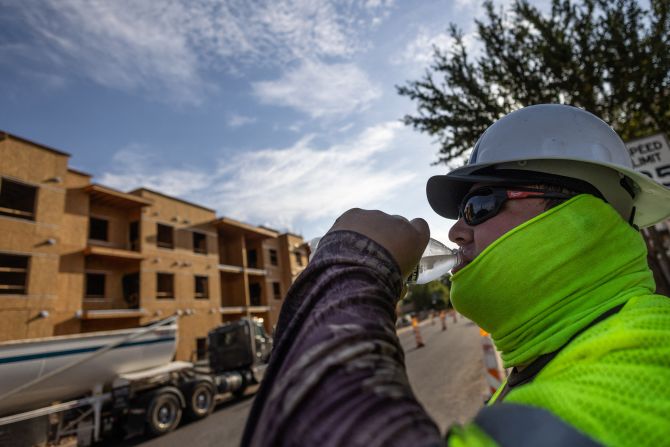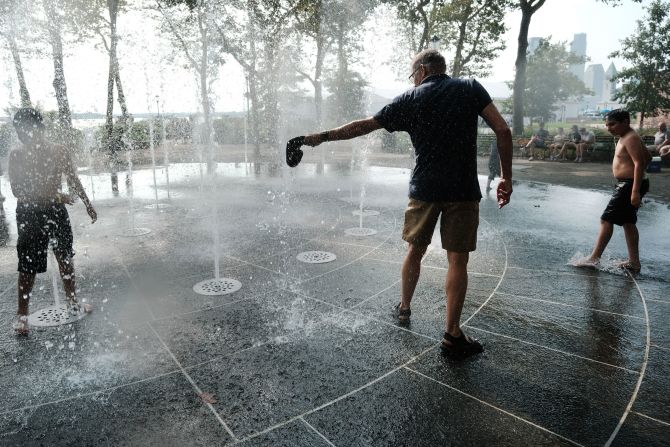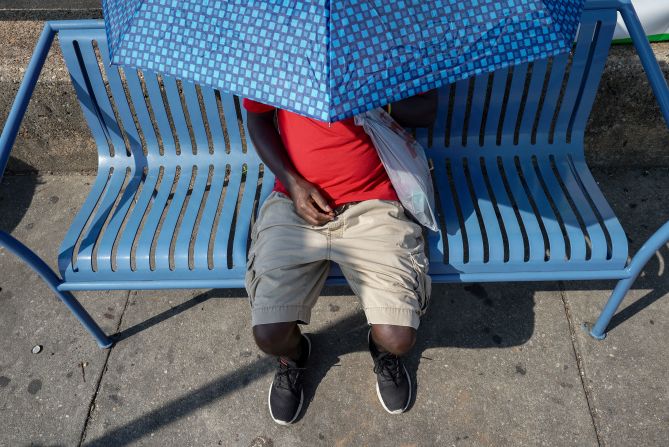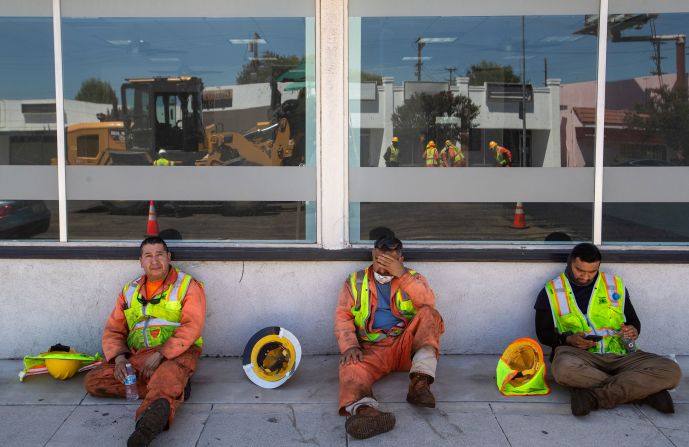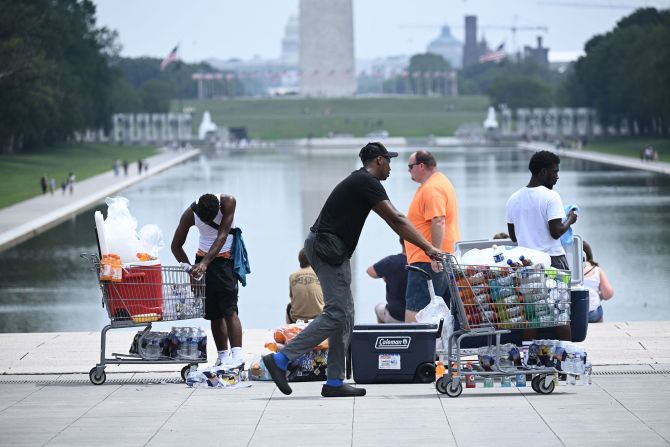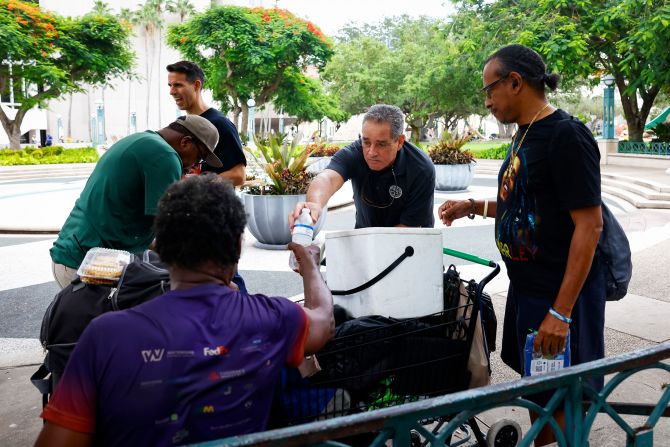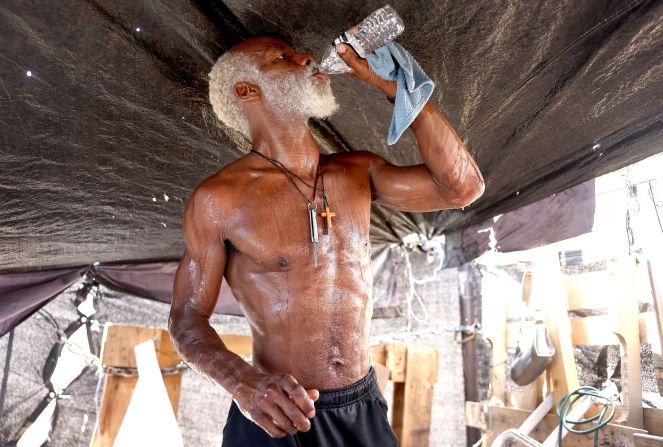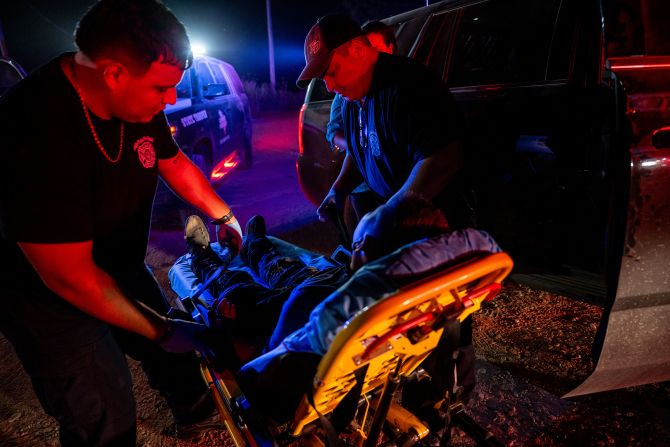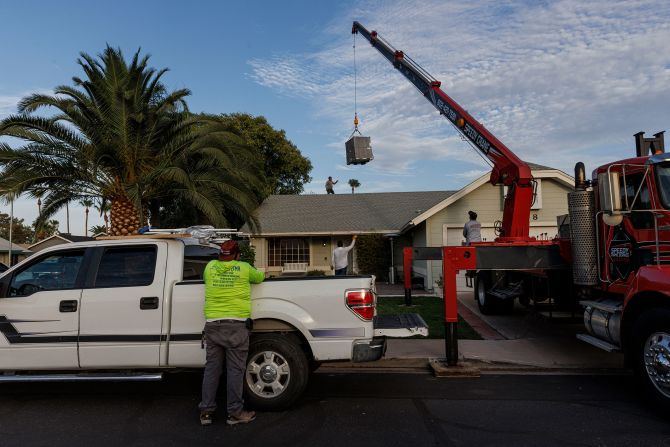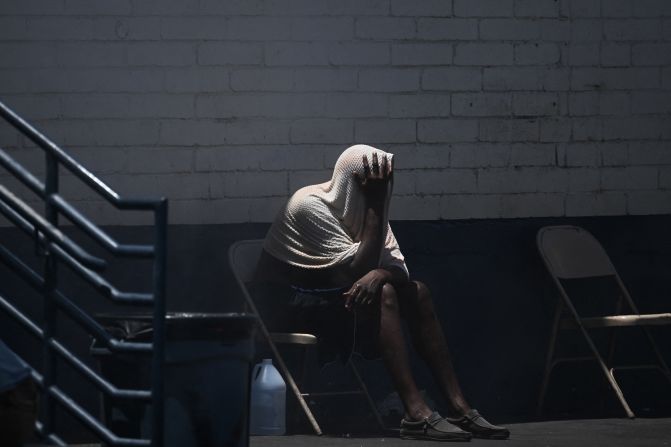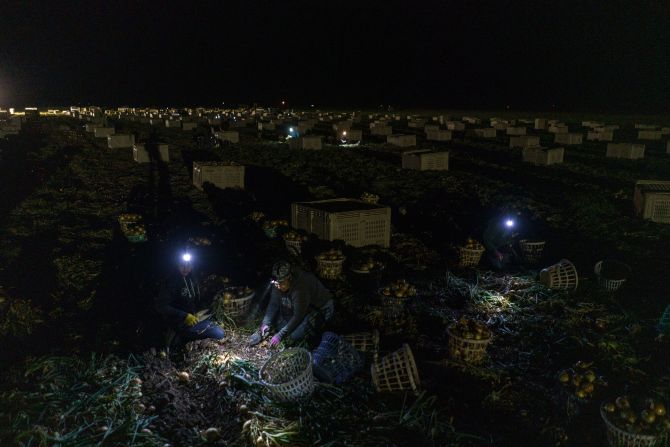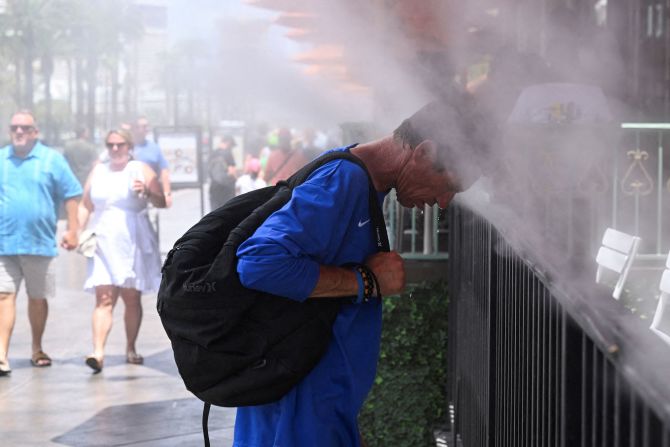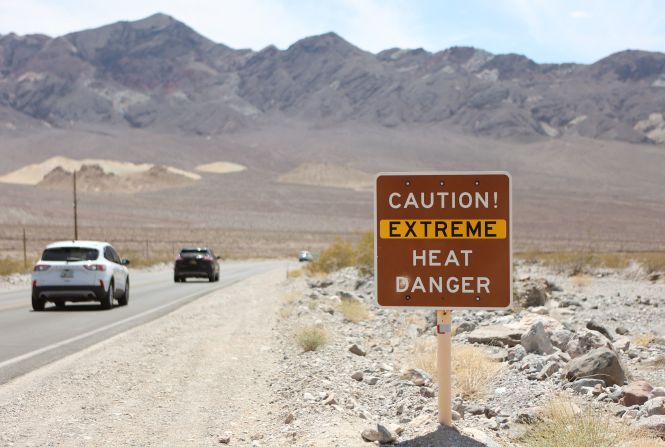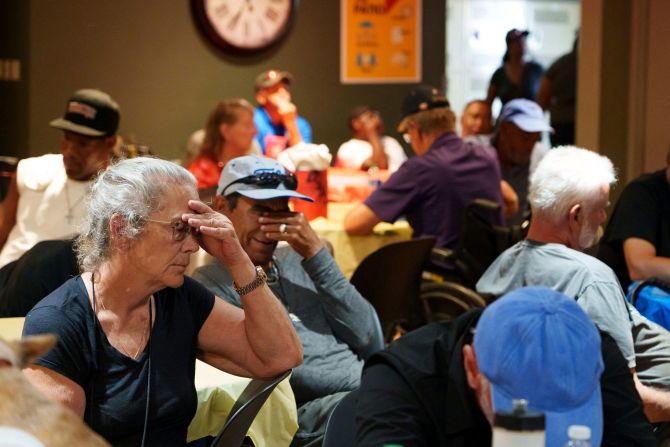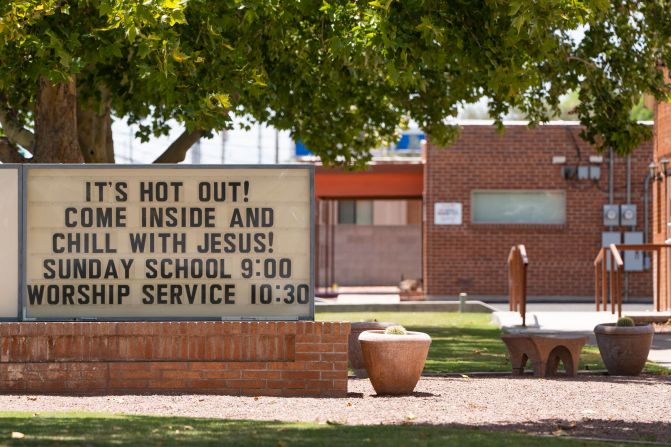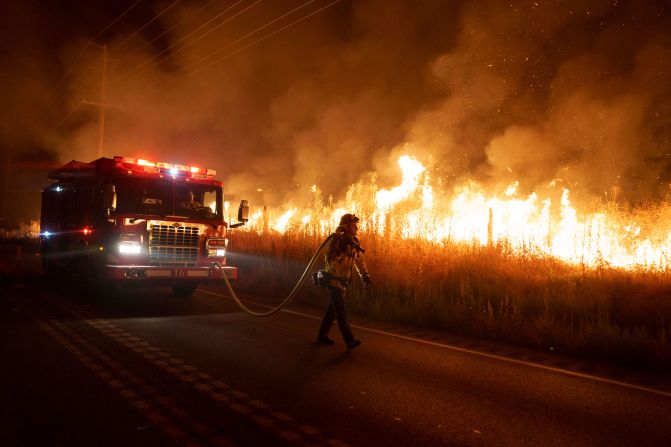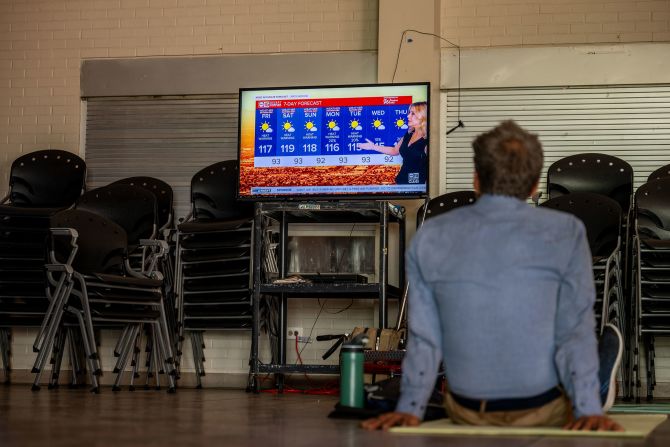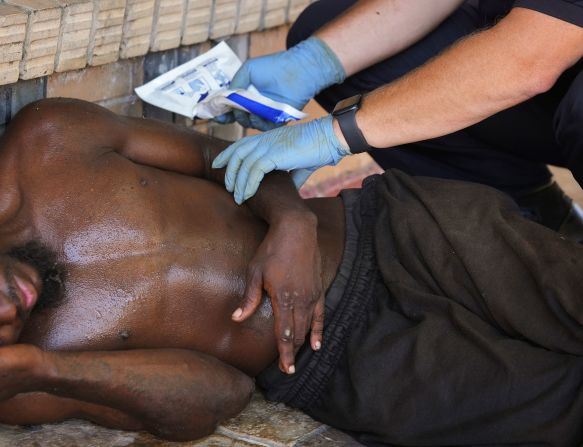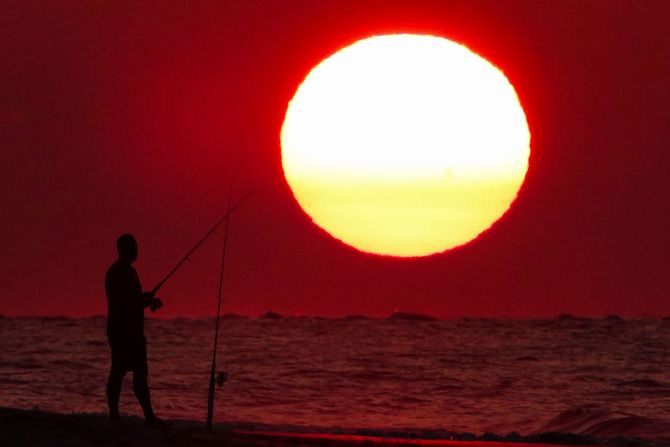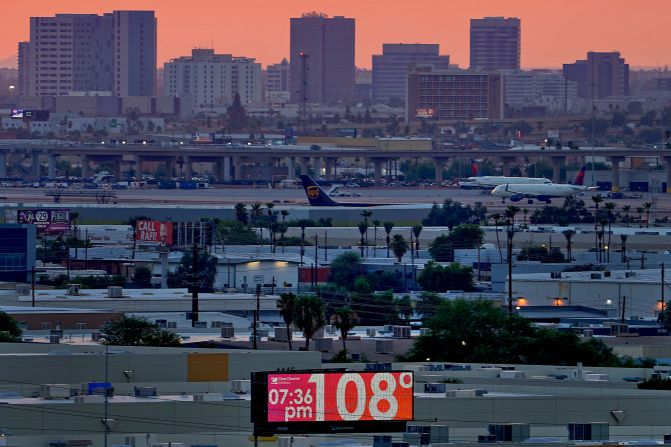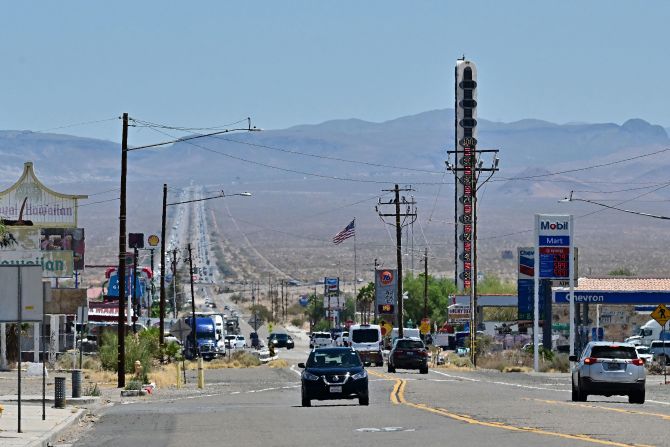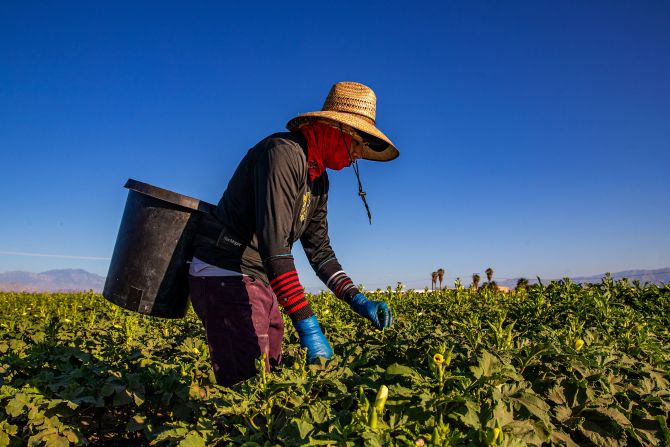Scorching temperatures peaked for most of the Midwest on Friday, but the Northeast will have to wait until Sunday for temperatures to return to normal.
This comes as the Southwest has been suffering for weeks and has had to take grim steps to deal with the rising human cost of a record-long heat wave during the planet’s hottest month in more than 100,000 years.
The number of people dying from heat-related complications is rising. In Arizona, the Maricopa County Medical Examiner’s Office in Phoenix brought in 10 refrigerated containers to handle a possible overflow of heat-related deaths.
The containers haven’t been needed yet, but the office is over its normal capacity of 224 bodies during a July that has “been worse than prior years,” Maricopa County spokesperson Jason Berry told CNN affiliate KTVK/KPHO.
The county has reported 25 heat-associated deaths so far this year as of Monday, with dozens of other deaths still under investigation for a potential link to heat.
“While we typically see a surge in heat-related deaths in July, we won’t know how many … we have this year until forensic pathologists complete their investigations,” Maricopa County spokesperson Jessie Caraveoa told CNN.
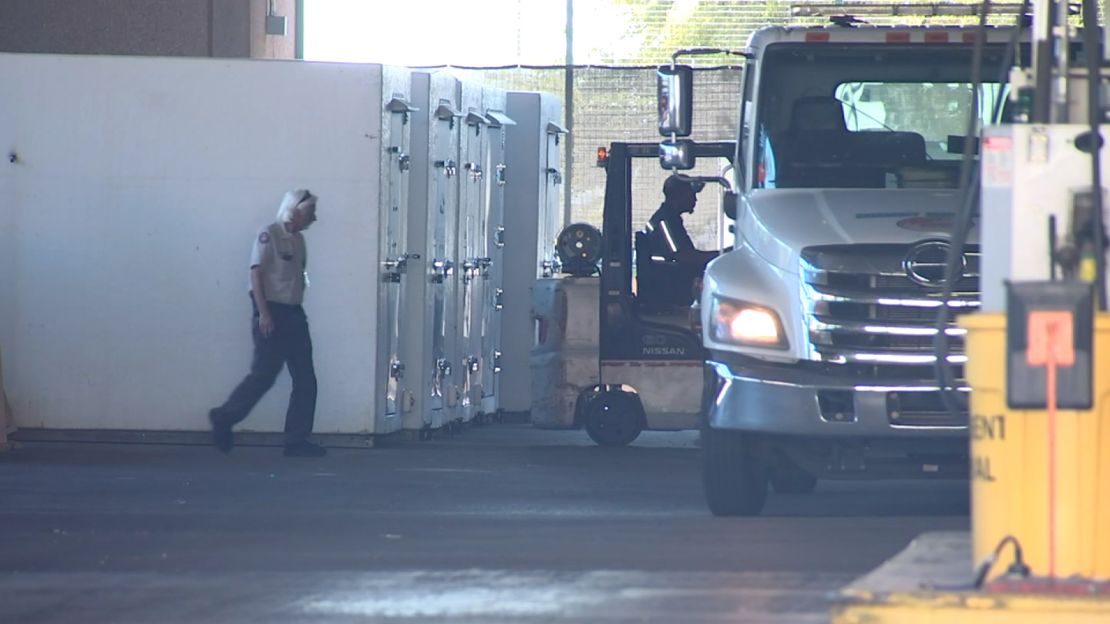
Arizona officials are also reporting emergency room visits for extreme heat burns after people fall to the ground, and even cactuses are wilting and dying from the persistent triple-digit temperatures.
Animals are also suffering. Twenty-one dogs were rescued from high heat in a garage and a concrete shed-like structure on the premises of a home “unfit for human or animal lodging” in Lawrenceburg, Tennessee, the Lawrence County Sheriff said. Temperatures in the area were in the 90s and the dogs had no food or water. The dogs were all removed from the property and are being treated, some for “physical injuries.”
More than 150 million people from Southern California to New England were facing dangerous heat on Friday for the second consecutive day after it expanded north and east. Record-high temperatures were reported on Thursday in Arizona, California, Texas, Louisiana and Washington, DC.
In El Paso, Texas, temperatures hit 104 degrees on Friday, bringing the total number of consecutive days above 100 to 43, but the city is expected to have some relief on Sunday when the high temperature could stay below 100.
Heat indexes – a measure of what the temperature feels like on the skin when accounting for relative humidity – reached between 105 and 110 degrees on Friday in Washington, DC, Chicago and St. Louis.
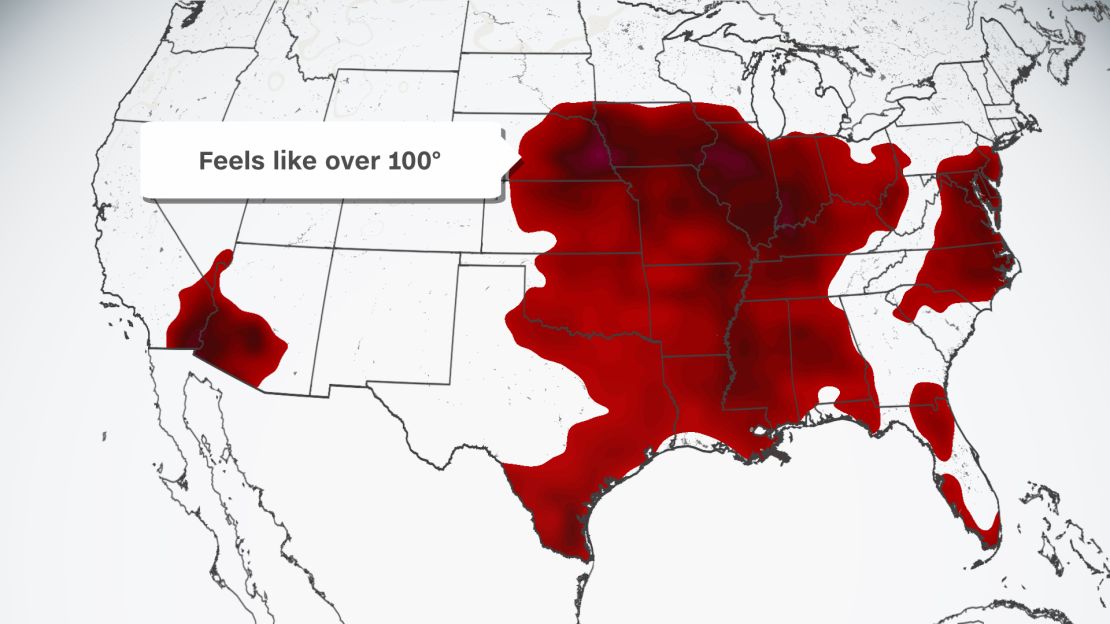
Overnight temperatures won’t dip below the 80s in places like St Louis and Kansas City – a particularly dangerous forecast since nighttime heat limits the opportunity for the body to cool off and protect itself from heat illness.
Here’s how some communities have taken heat precautions to try to keep people safe:
- Heat health emergencies: The cities of Boston and Philadelphia each declared the emergency to provide resources to residents including opening cooling sites. Philadelphia is also ramping up homelessness outreach.
- “Let’s be clear: heat can kill”: In New York City, about nine million residents may endure heat indexes exceeding 100 degrees Friday, as an excessive heat warning remains in effect through Saturday night. Mayor Eric Adams warned in a tweet that such temperatures can be fatal. “This is dangerous. Take precautions,” he said.
- Expanded access to public pools: Pools and water park facilities in Providence, Rhode Island, plan to offer extended hours over the next several days due to the extreme heat, Mayor Brett Smiley said Thursday. Officials in Lexington, Kentucky, are also offering discounted rates at its six public pools. Many areas experiencing extreme heat have also opened cooling centers.

The heat is also taxing power infrastructure in many parts of the country.
Energy provider Con Edison has asked New York residents to reduce their consumption. “Intense heat and increased demand for air conditioning can cause strain on the electric system and may lead to localized outages,” the utility said in a news release.
And PJM Interconnection – the nation’s largest power grid system – on Thursday declared an emergency alert, which instructs all systems to be online, including those with planned outages. The utility coordinates electricity for more than 65 million people in all or parts of Delaware, Illinois, Indiana, Kentucky, Maryland, Michigan, New Jersey, North Carolina, Ohio, Pennsylvania, Tennessee, Virginia, West Virginia and Washington, DC, according to its website.
When will it end?
After reaching a high of 93 degrees on Friday, Chicago’s residents are expected to see cooler temperatures on Saturday when a downright cool high of around 80 degrees is forecast.
That relief will spread to the mid-Atlantic and Northeast by Sunday as a cold front arrives, including in New York where a high in the low 80s is forecast on Sunday and Washington, DC, where the heat index will exceed 100 degrees on Saturday before highs drop back into the upper 80s by Sunday.
Relatively cooler temperatures are finally headed to Phoenix, too. Phoenix hit a preliminary high temperature of 113 degrees on Friday, marking the 29th day the city has recorded temperatures above 110 degrees – a trend that is forecast continue into the weekend before the streak could finally end by Sunday or Monday.
Unfortunately, the heat won’t disappear entirely in the country. Several locations along the Gulf Coast and in Texas, including New Orleans, Houston and Dallas could threaten record high temperatures on Monday and Tuesday.
CNN’s Robert Shackelford, Rebekah Riess, Michelle Watson, Jared Formanek, Eli Masket, Sarah Dewberry, Maria Sole Campinoti and Macie Goldfarb contributed to this report.

